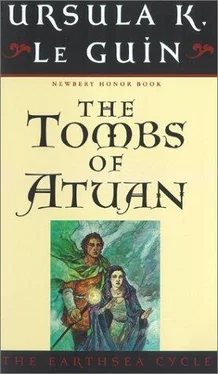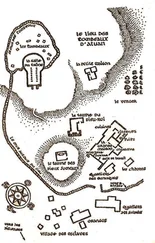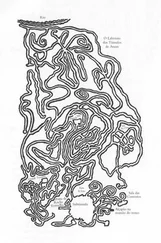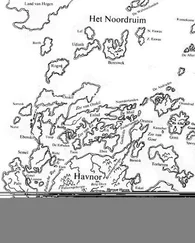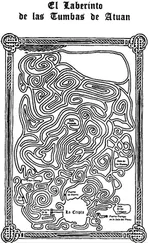Ursula Le Guin - The Tombs of Atuan
Здесь есть возможность читать онлайн «Ursula Le Guin - The Tombs of Atuan» весь текст электронной книги совершенно бесплатно (целиком полную версию без сокращений). В некоторых случаях можно слушать аудио, скачать через торрент в формате fb2 и присутствует краткое содержание. Жанр: Фэнтези, на английском языке. Описание произведения, (предисловие) а так же отзывы посетителей доступны на портале библиотеки ЛибКат.
- Название:The Tombs of Atuan
- Автор:
- Жанр:
- Год:неизвестен
- ISBN:нет данных
- Рейтинг книги:3 / 5. Голосов: 1
-
Избранное:Добавить в избранное
- Отзывы:
-
Ваша оценка:
- 60
- 1
- 2
- 3
- 4
- 5
The Tombs of Atuan: краткое содержание, описание и аннотация
Предлагаем к чтению аннотацию, описание, краткое содержание или предисловие (зависит от того, что написал сам автор книги «The Tombs of Atuan»). Если вы не нашли необходимую информацию о книге — напишите в комментариях, мы постараемся отыскать её.
The Tombs of Atuan — читать онлайн бесплатно полную книгу (весь текст) целиком
Ниже представлен текст книги, разбитый по страницам. Система сохранения места последней прочитанной страницы, позволяет с удобством читать онлайн бесплатно книгу «The Tombs of Atuan», без необходимости каждый раз заново искать на чём Вы остановились. Поставьте закладку, и сможете в любой момент перейти на страницу, на которой закончили чтение.
Интервал:
Закладка:
So she took Manan often into the nearer regions of the Labyrinth, that he might learn the ways. He was not at all eager to go there, but as always he obeyed her. She made sure that Duby and Uahto, Kossil's eunuchs, knew the way to the Room of Chains and the way out of the Undertomb, but no more; she never took them into the Labyrinth. She wanted no one but Manan, utterly faithful to her, to know those secret ways. For they were hers, hers alone, forever. She had begun her full exploration with the Labyrinth. All the autumn she spent many days walking those endless corridors, and still there were regions of them she had never come to. There was a weariness in that tracing of the vast, meaningless web of ways; the legs got tired and the mind got bored, forever reckoning up the turnings and the passages behind and to come. It was wonderful, laid out in the solid rock underground like the streets of a great city; but it had been made to weary and confuse the mortal walking in it, and even its priestess must feel it to be nothing, in the end, but a great trap.
So, more and more as winter deepened, she turned her thorough exploration to the Hall itself, the altars, the alcoves behind and beneath the altars, the rooms of chests and boxes, the contents of the chests and boxes, the passages and attics, the dusty hollow under the dome where hundreds of bats nested, the basements and underbasements that were the anterooms of the corridors of darkness.
Her hands and sleeves perfumed with the dry sweetness of a musk that had fallen to powder lying for eight centuries in an iron chest, her brow smeared with the clinging black of cobweb, she would kneel for an hour to study the carvings on a beautiful, time-ruined coffer of cedar wood, the gift of some king ages since to the Nameless Powers of the Tombs. There was the king, a tiny stiff figure with a big nose, and there was the Hall of the Throne with its flat dome and porch columns, carved in delicate relief on the wood by some artist who had been dust for how many hundred years. There was the One Priestess, breathing in the drug-fumes from the trays of bronze and prophesying or advising the king, whose nose was broken off in this frame; the face of the Priestess was too small to have clear features, yet Arha would imagine that the face was her own face. She wondered what she had told the king with the big nose, and whether he had been grateful.
She had favorite places in the Hall of the Throne, as one might have favorite spots to sit in a sunny house. She often went to a little half-loft over one of the robing rooms in the hinder part of the Hall. There ancient gowns and costumes were kept, left from the days when great kings and lords came to worship at the Place of the Tombs of Atuan, acknowledging a domain greater than their own or any man's. Sometimes their daughters, the princesses, had put on these soft white silks, embroidered with topaz and dark amethyst, and had danced with the Priestess of the Tombs. There were little painted ivory tables in one of the treasuries, showing such a dance, and the lords and kings waiting outside the Hall, for then as now no man ever set foot on the ground of the Tombs. But the maidens might come in, and dance with the Priestess, in white silk. The Priestess herself wore rough cloth, homespun black, always, then and now; but she liked to come and finger the sweet, soft stuff, rotten with age, the unperishing jewels tearing from the cloth by their own slight weight. There was a scent in these chests different from all the musks and incenses of the temples of the Place: a fresher scent, fainter, younger.
In the treasure rooms she would spend a night learning the contents of a single chest, jewel by jewel, the rusted armor, the broken plumes of helms, the buckles and pins and brooches, bronze, silver-gilt, and solid gold.
Owls, undisturbed by her presence, sat on the rafters and opened and shut their yellow eyes. A bit of starlight shone in between tiles of the roof; or the snow came sifting down, fine and cold as those ancient silks that fell to nothing at hand's touch.
One night late in the winter, it was too cold in the Hall. She went to the trapdoor, raised it, swung down onto the steps, and closed it above her. She set off silently on the way she now knew so well, the passage to the Undertomb. There, of course, she never bore a light; if she carried a lantern, from going in the Labyrinth or in the dark of night above ground, she extinguished it before she came near the Undertomb. She had never seen that place, never in all the generations of her priestesshood. In the passage now, she blew out the candle in the lamp she carried, and without slowing her pace at all went forward in the pitch dark, easy as a little fish in dark water. Here, winter or summer, there was no cold, no heat: always the same even chill, a little damp, changeless. Up above, the great frozen winds of winter whipped thin snow over the desert. Here there was no wind, no season; it was close, it was still, it was safe.
She was going to the Painted Room. She liked sometimes to go there and study the strange wall drawings that leapt out of the dark at the gleam of her candle: men with long wings and great eyes, serene and morose. No one could tell her what they were, there were no such paintings elsewhere in the Place, but she thought she knew; they were the spirits of the damned, who are not reborn. The Painted Room was in the Labyrinth, so she must pass through the cavern beneath the Tombstones first. As she approached it down the slanting passage, a faint gray bloomed, a bare hint and glimmer, the echo of an echo of a distant light.
She thought her eyes were tricking her, as they often did in that utter blackness. She closed them, and the glimmering vanished. She opened them, and it reappeared.
She had stopped and was standing still. Gray, not black. A dull edge of pallor, just visible, where nothing could be visible, where all must be black.
She took a few steps forward and put out her hand to that angle of the tunnel wall; and, infinitely faint, saw the movement of her hand.
She went on. This was strange beyond thought, beyond fear, this faint blooming of light where no light had ever been, in the inmost grave of darkness. She went noiseless on bare feet, blackclothed. At the last turn of the corridor she halted; then very slowly took the last step, and looked, and saw.
–Saw what she had never seen, not though she had lived a hundred lives: the great vaulted cavern beneath the Tombstones, not hollowed by man's hand but by the powers of the Earth. It was jeweled with crystals and ornamented with pinnacles and filigrees of white limestone where the waters under earth had worked, eons since: immense, with glittering roof and walls, sparkling, delicate, intricate, a palace of diamonds, a house of amethyst and crystal, from which the ancient darkness had been driven out by glory.
Not bright, but dazzling to the dark-accustomed eye, was the light that worked this wonder. It was a soft gleam, like marshlight, that moved slowly across the cavern, striking a thousand scintillations from the jeweled roof and shifting a thousand fantastic shadows along the carven walls.
The light burned at the end of a staff of wood, smokeless, unconsuming. The staff was held by a human hand. Arha saw the face beside the light; the dark face: the face of a man.
She did not move.
For a long time he crossed and recrossed the vast cave. He moved as if he sought something, looking behind the lacy cataracts of stone, studying the several corridors that led out of the Undertomb, yet not entering them. And still the Priestess of the Tombs stood motionless, in the black angle of the passage, waiting.
What was hardest for her to think, perhaps, was that she was looking at a stranger. She had very seldom seen a stranger. It seemed to her that this must be one of the wardens – no, one of the men from over the wall, a goatherd or guard, a slave of the Place; and he had come to see the secrets of the Nameless Ones, maybe to steal something from the Tombs…
Читать дальшеИнтервал:
Закладка:
Похожие книги на «The Tombs of Atuan»
Представляем Вашему вниманию похожие книги на «The Tombs of Atuan» списком для выбора. Мы отобрали схожую по названию и смыслу литературу в надежде предоставить читателям больше вариантов отыскать новые, интересные, ещё непрочитанные произведения.
Обсуждение, отзывы о книге «The Tombs of Atuan» и просто собственные мнения читателей. Оставьте ваши комментарии, напишите, что Вы думаете о произведении, его смысле или главных героях. Укажите что конкретно понравилось, а что нет, и почему Вы так считаете.
